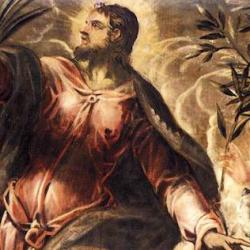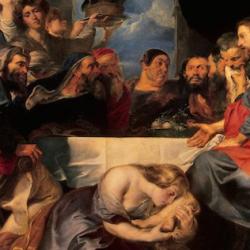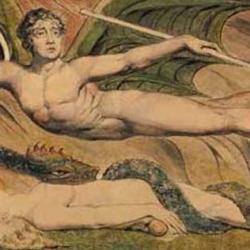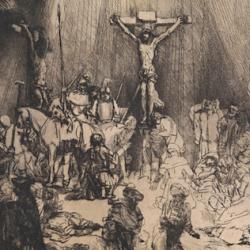The Prodigal Son parable (Luke 15) has been a favorite of liberal theologians for a couple of centuries. It seems to be a parable designed for liberal sensibilities: An indulgent, accepting Father; forgiveness extended without a cross; a surly older brother who might represent the “conservative” face of religion who demands reciprocity and fairness. It’s the parable that seems to best summarize H. Richard Niebuhr’s famous summary of liberalism: A God without judgment accepts human beings without sin by saving without a cross.
In response, some conservatives have attempted to find the cross in the parable. Tim Keller emphasizes that the stuff that the father gives to the returned prodigal come from the father’s goods, and hence from the older son’s future inheritance. The older son resents the father’s generosity because any gain for the prodigal is a loss for his brother. So the forgiveness does come at a cost, one borne, resentfully, by the older brother. But we have an Older Brother who gives His inheritance without resentment. The older brother of the parable resents a small diminishment of the value of his portfolio; Jesus gives His very life so that prodigals like us can wear our Father’s ring and robe, and share in His festive joy.
It’s a neat Christological reading, and does have some basis in the text. Jesus tells the parable because the Pharisees are complaining about Jesus eating and drinking with sinners (Luke 15:1-2). He is the Son who shares in the joy of the Father over repentant sinners; He is in fact the embodied joy of the Father, who isn’t angry over the fact that the Father makes such a fuss over the rest of his children. Jesus is not envious of his position, not grasping for equality with God, but rejoices when the Father finds things that have been lost. Luke 15 as a whole poses a stark contrast between Jesus the Older Brother and the Pharisees, who should be entering into joy.
Still, Keller’s reading seems somewhat forced. There’s no explicit indication in the text that the older brother of the parable is worried about the loss of his inheritance, and the damage is minimal anyway. Granted that clothing and jewelry were dear in the ancient world, the father seems a wealthy man and the older brother would have a stash even after losing one set of clothes, a ring, and a fatted calf. The older son still stands to inherit all that the father has. Perhaps we are to understand just how petty the older son is, and so to understand that the Pharisees whom he represents are angry about even the least loss of status. Perhaps we are to see just how little it costs the Pharisees to welcome sinners. Even so, to suggest that the small loss to the older brother evokes the greater loss of the cross seems a step too far.
The larger question is whether we should expect Jesus to include an entire substitutionary atonement theory in every parable.
Continue at Theopolis Institute web site.















